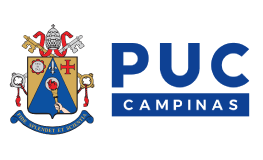Lines of Research:
- Integrated Planning and Management of Urban Infrastructure Systems
Focuses on the development of intelligent cities form methods and techniques that contribute for the optimization of the use of electrical energy; improvement of the energetic efficiency in devices, electrical networks, and urban edifications; insertion of renewable energy sources into the urban environment; development of methodologies and software for the analysis, management, and optimization of teleinformatics and telecommunication network elements; monitoring, integrated planning, and management of urban infrastructure systems.
- Sustainability of Urban Infrastructure Systems
Focuses on the analysis of infrastructure problems in urban areas and their surroundings, considering the relation of the natural environment with the anthropic and the search for environmental sustainability of cities; approaches sustainability associated to planning and integrated management of the hydric resources, the recovery of degraded and contaminated areas, and of Forest remainders in urban areas; aims, also, at improving the standard of edifications and urban environment, where they are inserted, through study, analysis, and proposition of sustainable constructions, incorporating the issue of reuse of solid residues, of use of alternative materials, and of thermal comfort.
Objectives
The Post-Graduation Program in Urban Infrastructure Systems has as main objective qualify its students for research and teaching career.
The Program, in Academic Master’s Degree level, has the following specific objectives:
(a) confer the student the degree of Master in Urban Infrastructure Systems;
(b) prepare the student to act in the academic environment, qualifying him/her not only as producer and inducer of scientific knowledge, but also as a vector of dissemination of such knowledge;
(c) contribute for the continuous development of research in Urban Infrastructure Systems;
(d) enable, on consistent basis, the expansion of the Post-Graduation in Urban Infrastructure Systems in view of the constitution of a Complete Program, with the levels of Master’s and Doctor’s Degree, at PUC-Campinas;
(e) promote the consolidation, in the University scope, of the Great Areas of Knowledge: Exact and Earth Sciences, Engineering areas, and Applied Social Sciences.
Target Audience
– Students graduated in Engineering Courses and areas alike.
Scholarship Modalities
a) CAPES/MEC: Program of Support to Post-Graduation from Private Education Institutions;
b) PUC-Campinas/Rectorship: 50% exemption on tuition.
Curricular Structure
For the conclusion of the Master’s Degree in Urban Infrastructure Systems, aiming at the title of Master, a total of 32 credits are necessary, attributed as follows:
1) 02 mandatory disciplines of 03 credits, adding up to a total of 06 credits;
2) 04 elective disciplines of 03 credits, adding up to a total of 12 credits;
3) 03 modules of Advanced Research Seminars, all mandatory, adding up to a total of 06 credits;
4) Approval on Qualification Exam: at the end of the first year of the Master’s Degree course the student will have to submit his/her dissertation project to a Qualification Exam.
5) Dissertation: 08 credits.
Minimum duration of the Master’s Degree in Psychology as Profession and Science is 12 and maximum 24 months.
Thus, the course progression is distributed as follows:
| 1st semester | 2nd semester | 3rd semester | 4th semester |
|---|---|---|---|
| Mandatory (1) | Elective (1) | Elective (3) | Guidance |
| Mandatory (2) | Elective (2) | Elective (4) | – |
| ARS (1) | ARS (2) | ARS (3) | – |
| Guidance | Guidance | Guidance | – |
History
The Pontifícia Universidade Católica de Campinas – PUC-Campinas, is an educational institution of catholic confessional nature, founded on 07 of June of 1941, and has as objective the production and dissemination of knowledge, through activities indissociable from education, research, and extension.
PUC-Campinas is, therefore, a Higher Education institution with 72 years of experience, broadly known for the service it renders the country and the region, fact verified by the number and quality of its of egress; its location in three campuses favors its regional insertion, and especially, along the community of municipalities composing Campinas Metropolitan Region – RMC, one of the most dynamic poles of industrial expansion of the State of São Paulo.
Over the last decades, as result of policies of stimulus and of the investments occurred there, RMC presented an intense urbanization process that resulted in accelerated metropolization with huge population growth and disordered urban expansion.
For having gone through such process, the RMC ended up suffering from many unbalances typical from huge metropolitan regions: in the environmental area, for example, there was the release of industrial and domestic effluents into the watercourse of the Hydrographic Basins from rivers Piracicaba, Capivari, Jundiaí, and Mogi Guaçu; in the urban area, the disorganized space occupation; in the area of transports, the chaotic traffic, due to the high dependence on automobiles and mass transportation limited to buses, implying, also, in growing atmospheric pollution; in the field of civil construction, the lack of housing suitable to the human condition; in the area of sanitation, deficient sewage collection and treatment; in the area of drainage, constant floods; in the area of energy, the irregular supply or no supply, due to high consumption, of the energetic inefficiency of distribution services, and generalized waste; in the area of information and communication technology (ICT), huge deficiencies in metropolitan networks preventing a comprehensive and quality support.
Thus, with the objective of investigating and researching the problems related to urbanization of Campinas Metropolitan Region, as well as other Metropolitan Regions, PUC-Campinas created a Stricto Sensu Post-Graduation Program, Academic Master’s Degree, in Urban Infrastructure Systems, approved and recommended by the Coordination for the Improvement of Higher Level Personnel (CAPES) from the Ministry of Education (MEC).
Urban Infrastructure Systems are considered, under this Program’s view, as a set of connected, linked, and interdependent systems that may then be planned, operated, and maintained integrated; so, the Urban Infrastructure Systems may be aggregated in five alike groups:
– Urban Infrastructure Systems related to hydric resource
– Urban Infrastructure Systems related to transport ways
– Urban Infrastructure Systems related to energy
– Urban Infrastructure Systems related to telecommunications
– Urban Infrastructure Systems related to residues
The Stricto Sensu Post-Graduation Program in Urban Infrastructure Systems from PUC-Campinas contemplates, thus, the Concentration Area “Urban Infrastructure Systems” and the following Lines of Research: “Sustainability of Urban Infrastructure Systems”, and “Integrated Planning and Management of Urban Infrastructure Systems”.
The Concentration Area “Urban Infrastructure Systems” deals with the investigation and research in Urban Infrastructure Systems, focusing the sustainability, integrated planning, and management of its several domains.
The Line of Research “Sustainability of Urban Infrastructure Systems” focuses the analysis of infrastructure problems in urban areas and their surroundings, considering the relation of the natural means with the atrophic and the search for environmental sustainability of the cities; approaches sustainability associated to planning and integrated management of hydric resources, the recovery of degraded and contaminated areas, and forest remainders in urban areas; it aims, also, at improving the standard of edifications and urban environment where they are inserted, through study, analysis, and proposal of sustainable constructions, incorporating the issue of reutilization of solid residues, utilization of alternative materials, and thermal comfort.
The Line of Research “Integrated Planning and Management of Urban Infrastructure Systems” focuses on the development of intelligent cities from methods and techniques that contribute for the optimization of the use of electrical energy; improvement of energetic efficiency in devices, electric networks and urban edifications; the insertion of renewable sources of energy in the urban environment; development of methodologies and software for the analysis, management and optimization of network computing and telecommunication network elements; monitoring, integrated planning, and management of urban infrastructure systems.








